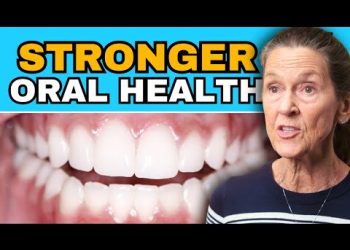Understanding Oral Health: The Role of Mouthwash
Maintaining oral health can involve various practices, including brushing, flossing, and using mouthwash. Mouthwash, in particular, is often used in an effort to freshen breath and eliminate bacteria. However, the type of mouthwash used plays a critical role in its effectiveness and impact on oral health. Dr. Andrew Huberman explores whether alcohol-based mouthwashes contribute positively or negatively to oral hygiene.
The Impact of Alcohol-Based Mouthwash
Many widely used mouthwashes contain alcohol, which, according to Dr. Huberman, can actually be detrimental to oral health. These mouthwashes are known to deplete components of the mucosal lining and disrupt the oral microbiome. This disruption can eliminate beneficial bacteria necessary for maintaining a healthy balance in the mouth, leading to more harm than good.
When to Use Antiseptic Mouthwash
Antiseptic mouthwashes, some containing alcohol, are at times prescribed for severe bacterial infections or overgrowth in the mouth. It’s crucial to use such products only when recommended by healthcare professionals. These mouthwashes, while beneficial for specific conditions, might negatively impact overall oral health and gut microbiota. Therefore, it’s advisable to discuss potential risks and benefits with a healthcare provider.
Alternatives to Alcohol-Based Mouthwash
For those aiming to freshen breath without the drawbacks of alcohol-based mouthwashes, there are alternatives. Alcohol-free mouthwashes are available, although sometimes harder to find. These alternatives, often developed by licensed dental professionals, offer viable options for mouth care without compromising oral health.
Low-Cost Dental Care Solutions
Affordable alternatives to commercial dental products exist. For instance, brushing with a mixture of baking soda and water is a safe and inexpensive option. Dentists agree that baking soda is low on the abrasiveness scale, making it gentle yet effective for oral care. This simple, effective solution scrapes off biofilm and cleans teeth without the need for commercially available products.
The Risks of DIY Mouthwash
Homemade mouthwashes often include ingredients like baking soda and hydrogen peroxide. However, Dr. Huberman warns against these DIY solutions, particularly those involving hydrogen peroxide, due to their potential to cause harm to the oral cavity. The abrasiveness and reactivity of these substances can exacerbate oral issues rather than alleviate them.
Safe Alternatives with Salt Solutions
Creating a high salt concentration rinse can provide a beneficial environment for healthy mouth bacteria. This cost-effective solution involves swishing saltwater in the mouth and spitting it out, followed by a rinse with clear water. This method supports a healthy oral pH balance and promotes beneficial microbial growth.
Effect of Alcohol-Based Mouthwash on Nitric Oxide Production
One significant drawback of alcohol-based mouthwashes is their reduction of nitric oxide production in the oral cavity. Nitric oxide is vital for vasodilation and the health of small capillaries, aiding in oxygen and nutrient delivery throughout the body. Maintaining a healthy oral microbiome without alcohol-based products can support nitric oxide production, contributing to overall health.
Reevaluating Mouthwash in Oral Care
The use of mouthwash should be carefully considered as part of an oral care routine. While aiming for fresh breath, individuals should be mindful of the potential negative effects of certain mouthwashes, particularly those containing alcohol. Alternative methods and products are available that can support oral health without these drawbacks.
Final Thoughts on Oral Health Practices
Dr. Huberman’s insights into mouthwash use highlight the importance of maintaining a balanced and informed approach to oral health. Avoiding alcohol-based mouthwashes and opting for alternatives that support a healthy oral microbiome can enhance overall oral hygiene and well-being. Understanding and choosing appropriate dental care practices can lead to long-term benefits for both oral and general health.











